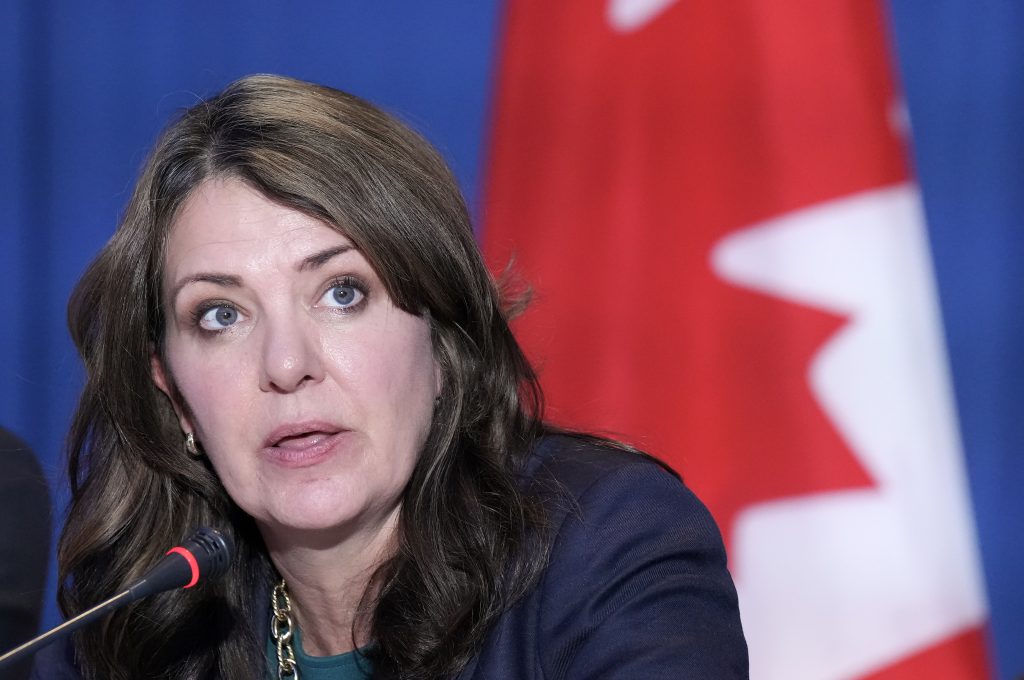Barcelona locals reclaim city from tourists during pandemic
Posted Jun 4, 2020 1:26 am.
Last Updated Jun 4, 2020 1:30 am.
BARCELONA, Spain — For florist Laura Gómez and many other Barcelona residents, the COVID-19 pandemic has one silver lining, amid all the death and suffering.
For the first time in decades, locals won’t feel outnumbered by the throngs of foreign visitors that flood Spain’s top tourist destination each summer.
No one doubts that their absence will deepen Spain’s pandemic-induced economic slump, but those like Gómez who have avoided infection hope to enjoy at least a few weeks’ respite from mass tourism, which they believe is ruining their hometown.
“Las Ramblas are ours again,” Gómez said, tending the flower stall her family has run for four generations in a prime location on that iconic Barcelona promenade. She reopened it last week after two months of lockdown due to the coronavirus outbreak that has killed more than 27,000 in Spain.
Where caricature artists normally hawk their works and the incessant chatter of the flowing crowds masks all gentler sounds, you can now hear something unfamiliar: birdsong.
“You can’t imagine how annoying it is” with tourists, Gómez said. “People asking you all day long where the cathedral is, where the beach is. I am not a tourist information office!”
She still sells her dwindling number of local clients cut roses and sunflowers, bouquets, seed packets and potted geraniums, shunning the cacti in souvenir mugs that are a staple of other flower stalls.
“Tourists only want to take a photo, why would they want to buy flowers?” said Gómez. “No one lives here anymore. Go to the outer neighbourhoods and you see people in the street. Here the people couldn’t take it any more and left.”
Some, however, miss the vibrancy they say tourists provide.
“It is a pity to see Las Ramblas like this,” said José Montero, who works nearby and lunches daily at an outdoor restaurant on the street. “Las Ramblas needs life.”
The city’s other top site, Antoni Gaudí’s La Sagrada Familia Basilica with its sandcastle-like spires, remains closed. Without the gawking multitudes, the only sign of life outside was an elderly man dozing on a bench.
But whatever their feelings on tourism, Barcelona’s residents are about to feel the economic pain of living without a huge chunk of the 10 million foreigners who visit each year.
Unlike Italy, which is opening up to foreign tourists, Spain is waiting until July to lift its 14-day quarantine on incoming travellers — despite pressure to restart its economy that relies on tourism for 12% of its activity. The national statistics office said on Monday that zero tourists arrived in April. A year earlier, 7 million tourists spent 7 billion euros ($7.8 billion) in Spain.
While Europe considers how to safely resume continental travel during a pandemic, Spain’s government is encouraging Spaniards to vacation domestically. Catalonia’s separatist-led regional government has even launched a tourism campaign to attract people from elsewhere in Spain.
Many business owners and workers, however, fear they may not make it without foreigner customers.
Jesús Martín runs the Can Ramonet restaurant specializing in paella near Barcelona’s seaside. He is unsure whether he can cover his costs with local clients.
“This place has been in my family for three generations, so staying open is about more than just money,” Martín said. “We depend on foreign tourists… I am not sure if we can get by with just Spaniards.”
Barcelona became one of the world’s top destinations after using the 1992 Summer Olympics to showcase its Mediterranean climate and cuisine, mesmerizing architecture, and liberal lifestyle.
Visitors kept on coming, despite a terror attack on Las Ramblas in 2017 and rioting by Catalan separatists last year. The city of just 1.6 million people welcomed a record 11.9 million tourists in 2019, almost 10 million of them from abroad.
But even though the sector provides Barcelona with 15% of its economic activity and 10% of its jobs, a growing number of citizens have soured on tourism. A survey of 3,600 residents by the city hall last year found that 61% felt Barcelona could not handle greater inflows.
Graffiti saying “Tourists, go home” popped up, along with protests against short-term rental platforms like Airbnb which residents blame for driving up real estate prices and forcing locals to move out. Many complain about the replacement of family-run stores by global chains, and the rowdy behaviour of foreign youths lured by low-cost flights.
“Barcelona has become a top destination for cheap, drunk partying. I’m all for partying, but I’m the first one to go out on my balcony and shout for people to be quiet,” said Mario, who did not share his last name because he works in the tourism sector.
Mario was rollerblading along a beachfront free of rental bikes and Segways weaving around couples taking selfies. In place of sun-baked bodies luxuriating in the warm sun and gentle breeze, the sand was occupied by a handful of families who flouted a temporary prohibition on sunbathing and let their children frolic in the surf.
“The beach has become wholesome and pure again,” Mario said.
Rafaela Pérez and her husband considered the hiatus from the hubbub bittersweet as they lingered on the boardwalk.
“It is glorious to have all this space for ourselves, but we know that it is not good for the economy,” the 63-year-old Pérez said. “We have neighbours who are having (financial) difficulties. And the worst is yet to come.”
___
Follow AP coverage of the virus outbreak at https://apnews.com/VirusOutbreak and https://apnews.com/UnderstandingtheOutbreak
Joseph Wilson, The Associated Press








